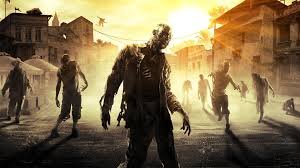
Have you ever wondered what it would be like to feel something without actually experiencing it? What it would be like to feel a pinprick without any knowledge of previous experiences with needles or the context in which the needle fits in with your current surroundings? Just experiencing your pain receptors trigger the neurons to give your arm a jerk and at the same time wondering why it is happening? It would be like watching someone else react to getting pricked, but that someone would be you. Fortunately for us, our qualia prevent us from living in an existence void of our own internal experiences. Qualia are the individual instances of our subjective, conscious experiences and in this paper I will attempt to make clear their role in the way we experience the world around us. Since this is a rather abstract topic, I will primarily rely on examples and human experiences while explaining the function of qualia.
The concept of qualia branches from epiphenomenalism, a view that although all physical events are mentally caused and that consciousness depends on the non-physical ‘qualia’ which are physically caused but have no physical effects. The theory also says that since every physical effect has a physical cause, all human behavior is explicable in physical terms. But then how does consciousness- phenomenal consciousness, the sort involved in there being 'something it is like' to have experiences - fit into the story? [ CITATION Rob08 \l 2057 ] This is where qualia come in. They bridge the gap between memory, the neural network of the brain and consciousness. We say animals do not have consciousness as humans do because our qualia give us a unique take on our surroundings which we have built from our internal subjective experiences. A human without qualia would be like a zombie, going through the same actions without a phenomenal consciousness but physically just like us. Without qualia we would be like observers, looking at our brain functions and trying to infer what is happening without actually being conscious of it. Just like looking at someone’s brain chart and trying to infer how they are feeling. Just like a person who is color-blind doesn’t know what color is even though he or she may understand the theory of light and what different wavelengths do. Color and all things related to it cannot be communicated to such a person because their color qualia are absent.
Qualia help us realize the big picture while taking any action, for example, if someone is eating an apple they aren’t just feeling the taste and texture of the apple but the sum total of all their experiences and emotions related to apples. The qualia connect the brains various functions together and help us understand the moment beyond the mere stimuli that assail our senses. Language is also closely related to qualia because it defines the scope of our understanding. We do not understand things of which we have no knowledge, similarly our senses fail us when we perceive something that is beyond our ability to define in language. For example, if someone with little knowledge of chemistry were to walk into a room filled with chlorine, their senses will tell them there is an odd odor in the room but for the most part, they will be oblivious to the gas because they do not relate the smell to the word- ‘chlorine’. Whereas a person who knows what chlorine smells like will immediately know what it is and will remain conscious of that fact as long as he or she is in the room.
There is a lot of discontent with the theory of qualia, it is of course a philosophical concept and no such physical structures exist in the brain. It conscribes to branches of philosophy like epiphenomenalism and goes against certain reductionist theories. There is an ongoing debate among philosophers and scientists as to how qualia came to be present in humans. The prevailing theory is that it evolved along with our sense of self. Because a self without qualia and the inherent subjective experiences of memory and thought is meaningless, or rather such a self would be Zombie (without a penchant for brains of course!).
Works Referenced:
John, James. "Against Qualia Theory." Philos Stud Philosophical Studies 147.3 (2008): 323-46. Web.
Kind, Amy. "How to Believe in Qualia." The Case for Qualia (2008): 285-96. Web.
Kirk, Robert. "The Inconceivability of Zombies." Philos Stud Philosophical Studies 139.1 (2007): 73-89. Web.
Authors get paid when people like you upvote their post.
If you enjoyed what you read here, create your account today and start earning FREE STEEM!
If you enjoyed what you read here, create your account today and start earning FREE STEEM!
Congratulations @vineetn! You have completed some achievement on Steemit and have been rewarded with new badge(s) :
Click on any badge to view your own Board of Honnor on SteemitBoard.
For more information about SteemitBoard, click here
If you no longer want to receive notifications, reply to this comment with the word
STOPBy upvoting this notification, you can help all Steemit users. Learn how here!
Downvoting a post can decrease pending rewards and make it less visible. Common reasons:
Submit